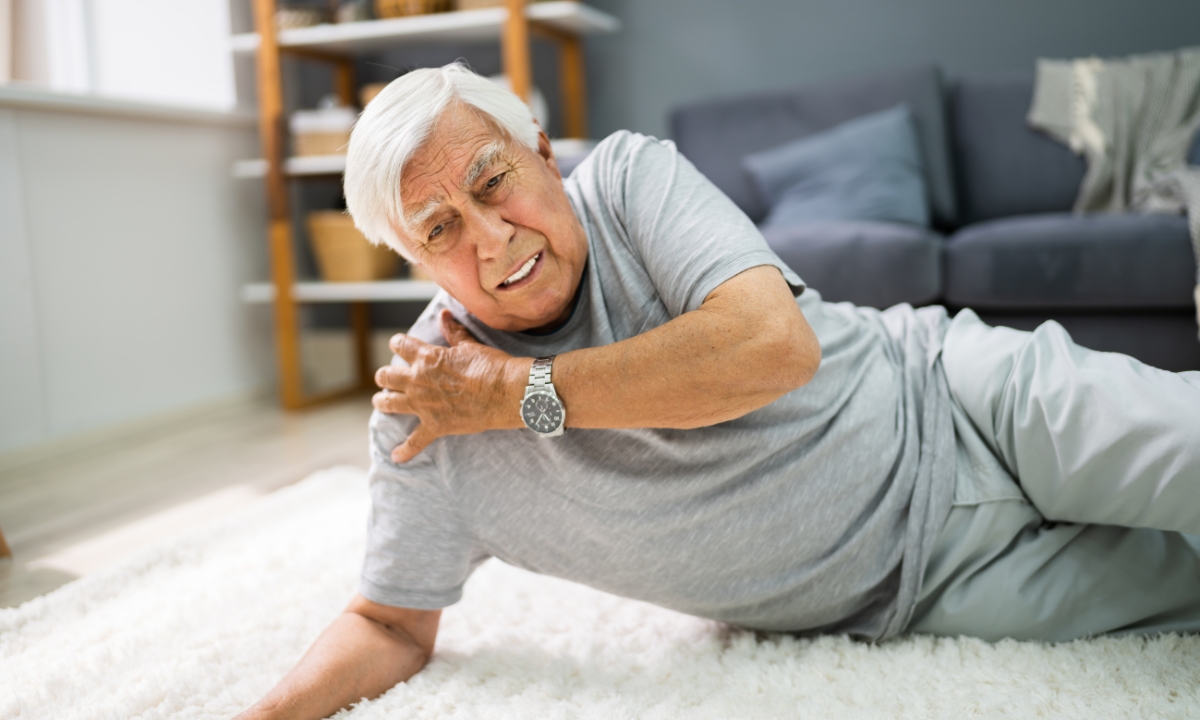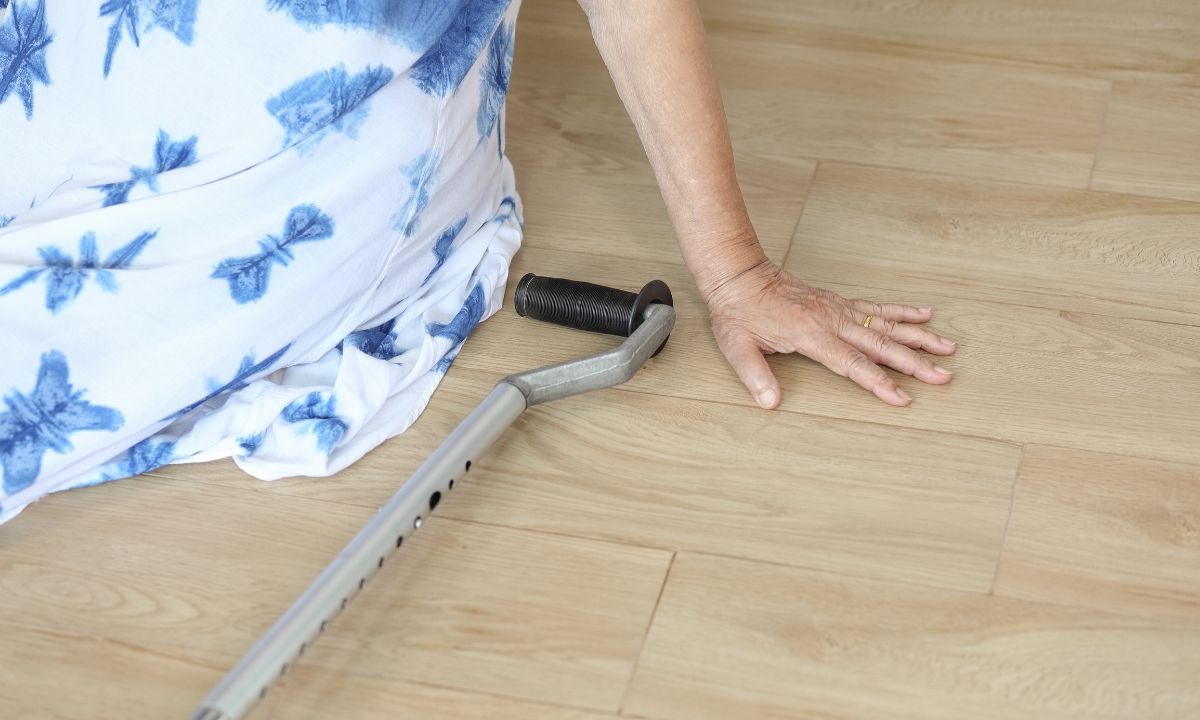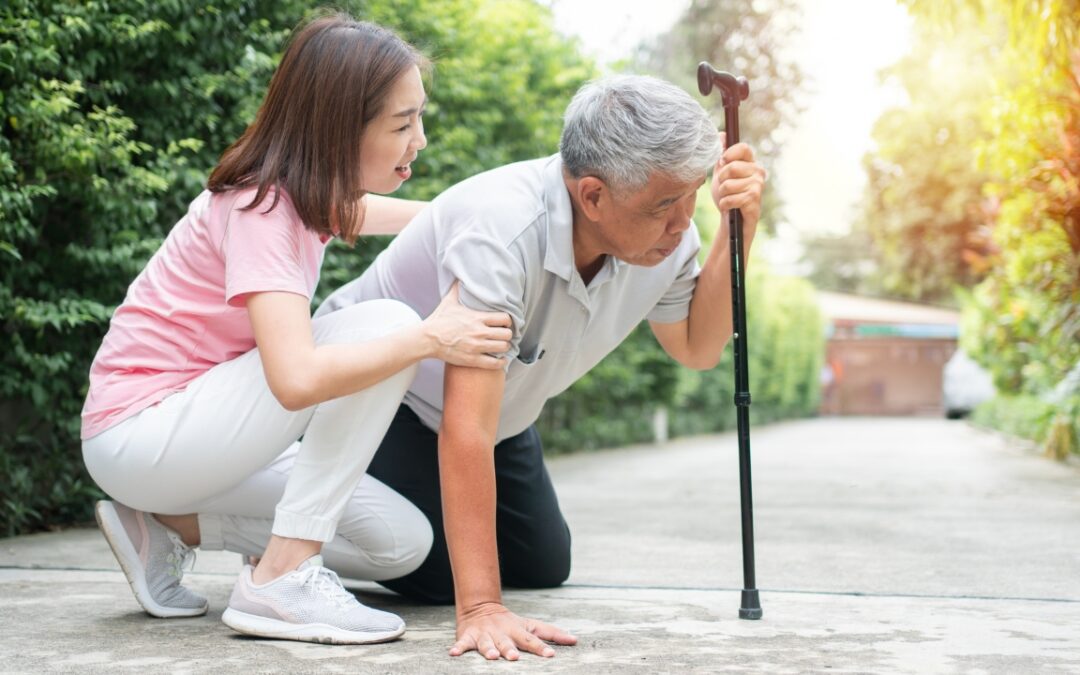As your loved one ages, maintaining their safety at home becomes increasingly important. In fact, according to the CDC, one in four seniors aged 65 and older falls each year, making falls the leading cause of both fatal and non-fatal injuries in older adults. While falls are common, they are also largely preventable. With the right measures in place, your loved one can continue to enjoy independent living while staying safe.
At Reliant Home Care Services, we believe that seniors should be able to age in place with confidence. Here are some practical tips for preventing falls and other accidents at home so your loved one can continue living independently.

Why Senior Safety Matters
Falls and accidents can have severe consequences for seniors, often leading to broken bones, head injuries, and decreased mobility. These incidents can significantly affect a senior’s ability to maintain independent living, leading to further health complications and even hospitalization.
But there’s good news: by taking proactive steps, you can help reduce your loved one’s risk of falls and other home hazards, ensuring their safety and well-being.
Practical Tips for Fall Prevention at Home
Fall prevention starts with making the home a safer environment. Here are some practical ways to protect your loved one from falls:
Remove Clutter
A cluttered home increases the risk of tripping and falling. Keep walkways clear of loose objects, such as shoes, magazines, and rugs. Regularly tidy up to ensure that your loved one has a clear path to move around safely.
Install Grab Bars and Handrails
Grab bars and handrails provide essential support for seniors with balance or mobility issues. Install grab bars in the bathroom near the toilet and shower, and add handrails along stairways. These fixtures give your loved one something sturdy to hold onto, reducing the risk of falls.
Improve Lighting
Poor lighting can lead to missed steps, slips, and falls. Ensure that all areas of the home are well-lit, especially staircases, hallways, and bathrooms. Use bright LED bulbs, add nightlights, and consider installing motion-sensor lights to make it easier for your loved one to navigate their home, even at night.
Use Non-Slip Mats
Bathrooms and kitchens are common areas for falls due to wet floors. Place non-slip mats in these areas, particularly in the shower or bathtub, to prevent slipping. Make sure mats are securely placed and don’t bunch up, as this can create a tripping hazard.
Rearrange Furniture
Ensure there is enough space for your loved one to move around freely. Rearrange furniture to allow for wide, unobstructed pathways. If your loved one uses a walker or cane, make sure there’s ample space for them to move comfortably.
Encourage Safe Footwear
Seniors should wear non-slip, supportive shoes, even indoors. Encourage your loved one to avoid walking in socks or slippers without proper grips, as these can lead to slips and falls. Proper footwear is a simple yet effective way to maintain independent living safely.
Other Safety Measures for Seniors
While fall prevention is crucial, there are other safety measures to consider to protect your loved one from accidents at home:
Fire Safety
Ensure that your loved one’s home is equipped with working smoke detectors and carbon monoxide alarms. Test them regularly to make sure they’re functional. Create an emergency exit plan and review it with your loved one so they know how to safely evacuate in case of fire.
Medication Safety
Medication mismanagement can be dangerous for seniors. Make certain your loved one has a list of their medications, the dosage, and when to take them. All medications should be clearly labeled or put in a pill sorter. An in-home caregiver can assist with medication reminders and organization, too, ensuring that your loved one takes the correct doses at the right times. This reduces the risk of missed doses or accidental overdoses.
Kitchen Safety
Many accidents happen in the kitchen. Make sure appliances are in good working order and encourage your loved one to use timers when cooking. Store frequently used items within easy reach to avoid the need for a step stool, which can be a fall risk.

How In-Home Care Can Enhance Safety
In-home care plays a significant role in maintaining senior safety. Here’s how having an in-home caregiver can help prevent falls and accidents, promoting independent living:
Supervision and Assistance
An in-home caregiver provides supervision, helping seniors with daily activities like bathing, dressing, and moving around the house safely. Having a caregiver present reduces the likelihood of accidents, as there’s always someone available to offer support.
Personalized Care Plans
In-home care from Reliant Home Care Services includes a personalized care plan tailored to your loved one’s needs. If mobility is an issue, our caregivers can help with safe transfers, walking assistance, and exercises to improve strength and balance.
Home Safety Assessments
Our caregivers are trained to identify potential hazards in your loved one’s home and recommend changes to enhance safety. We collaborate with families to create a safer living environment, ensuring that the home is well-suited for independent living.
Companionship and Monitoring
In addition to physical support, in-home caregivers offer companionship, which can improve your loved one’s mental and emotional well-being. Regular monitoring also means that caregivers can quickly identify changes in health or mobility, allowing for prompt action.
Reach Out to Reliant Today to Learn More
Senior safety is crucial to maintaining independent living and quality of life. By implementing fall prevention measures and other safety strategies, you can protect your loved one from common accidents at home. In-home care adds an extra layer of support, providing peace of mind for both seniors and their families.
At Reliant Home Care Services, we are committed to helping seniors live safely and independently in their own homes. If you’re interested in learning more about our services or would like a free consultation, please contact us today. Let’s work together to create a safer home for your loved one.

